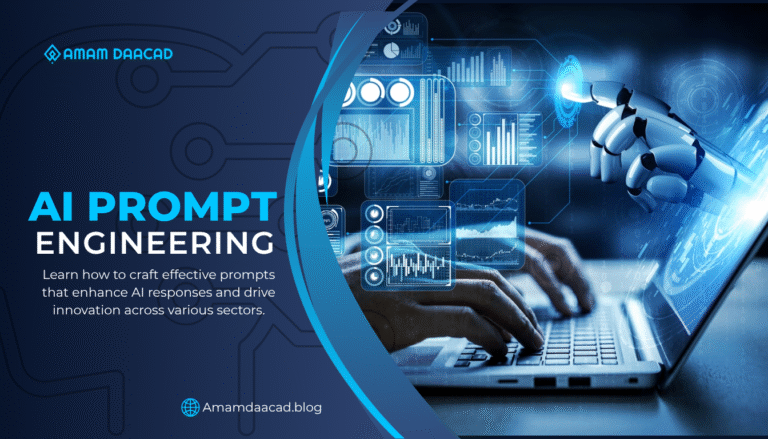How AI Chatbots Impact Search Behavior

Introduction to AI Chatbots and Search Behavior
The advent of artificial intelligence (AI) chatbots has revolutionized the way users interact with technology, particularly in the realm of search behavior. As automated systems capable of engaging in natural language conversations, AI chatbots have become integral to user experience, facilitating smoother interactions with search engines. By providing immediate responses to inquiries, chatbots significantly enhance user engagement and streamline the search process, changing how individuals access information online.
AI chatbots leverage advanced technologies such as natural language processing (NLP) and machine learning to understand user queries and respond effectively. This capability allows them to serve as intermediaries between users and vast databases of information, making the search process more efficient. As a result, users are experiencing a shift in how they conduct searches, often opting for conversational queries rather than traditional keyword-based searches. This evolving trend signifies a fundamental transformation in online search behavior, paving the way for more personalized and relevant interactions with information systems.
This blog post aims to delve into the comprehensive impact that AI chatbots have on search behavior, exploring the ways in which they shape user experiences and influence search engine optimization (SEO) practices. As AI chatbots continue to gain traction, their implications for businesses, marketers, and users alike become increasingly important. By understanding the nuances of this shift, stakeholders can better position themselves in a digital landscape that is rapidly changing due to technological advancements.
Through this exploration, we will also highlight the benefits and challenges associated with the integration of chatbots into search behavior, offering insights that can inform better strategies for leveraging these innovations in various applications. Ultimately, the influence of AI chatbots on search behavior represents a significant evolution in how people access information and engage with the digital world.
also read this Article
The Rise of AI Chatbots in Digital Interactions
The proliferation of AI chatbots across various digital platforms has transformed the way users engage with businesses and services. Over the past few years, advancements in artificial intelligence and natural language processing have facilitated the integration of chatbots into customer service frameworks, social media channels, and websites. These intelligent conversational agents are becoming pivotal in handling inquiries, thereby improving efficiency and customer satisfaction.
Initially, chatbots primarily operated through pre-defined scripts, limited in their ability to respond to complex queries. However, the evolution of machine learning technologies has significantly enhanced their functionality, allowing them to learn from interactions and provide more relevant responses. Businesses now deploy AI-driven chatbots to offer 24/7 support, addressing client needs in real-time without necessitating human involvement. This not only reduces operational costs but also caters to the increasing demand for immediate assistance from consumers.
Social media platforms have witnessed a remarkable rise in chatbot utilization, where they are employed to facilitate user engagement, manage inquiries, and even conduct transactions. Companies are harnessing AI chatbots to deliver personalized promotions and information, thus enhancing the overall customer experience. Furthermore, websites that integrate chatbots see increased user retention as these tools assist visitors in navigating through content, finding products, and resolving issues seamlessly.
As AI technology continues to advance, the potential for chatbot integration in various sectors will only increase. The strategic implementation of these digital assistants is reshaping consumer interactions, contributing to the overall transformation of standard search behaviors. By understanding the capabilities and impact of AI chatbots, businesses can better navigate the digital landscape and meet the evolving preferences of their clientele.
How AI Chatbots Modify User Searches
AI chatbots are fundamentally altering the landscape of how users conduct searches. With the advent of conversational artificial intelligence, there is a notable shift in the nature of search queries. Unlike traditional keyword-based searches that predominantly relied on specific terms or phrases, chatbots enable users to engage in more natural, dialogue-like interactions. This development has encouraged users to adopt conversational language in their queries, aligning closer to how they would communicate in everyday conversation.
The integration of AI chatbots into search functionalities has led to a marked increase in the use of long-tail keywords. Users are now more inclined to ask complete questions rather than simply inputting isolated keywords. For instance, instead of searching for “best coffee” as a standalone term, users may ask a chatbot, “What is the best coffee shop near me?” This preference for detailed queries reflects a growing user expectation for personalized and contextually relevant responses. As a result, search engines are adapting to this change by prioritizing content that aligns with conversational phrases.
Furthermore, the ability of AI chatbots to provide immediate answers has fundamentally transformed traditional search methods. Users no longer need to sift through multiple links or web pages; instead, they can obtain information quickly and conveniently through direct responses. This immediacy allows for a more efficient search experience, making it possible to complete tasks without the extensive search cycles that were once prevalent. The altered approach means that search engines now need to re-evaluate how they rank content, ensuring that responses delivered by chatbots are coherent and relevant.
Overall, the impact of AI chatbots on user searches serves to enhance the efficiency of information retrieval and aligns search behaviors more closely with human communication patterns, reshaping expectations in a digital landscape increasingly powered by AI technology.
The Role of Natural Language Processing
Natural Language Processing (NLP) plays a crucial role in how AI chatbots interpret and understand user queries. NLP is a branch of artificial intelligence that focuses on the interaction between computers and human language. It enables chatbots to process and analyze vast amounts of textual data in order to derive meaning from user inputs effectively. This technology leverages algorithms that allow chatbots to comprehend both the syntax and semantics of language, bridging the gap between human communication and machine understanding.
One of the key features of NLP is its ability to handle variations in language. Users frequently express the same query in different ways, and NLP enables chatbots to recognize these different phrasings and respond appropriately. For instance, if a user asks, “What’s the weather like today?” or “Can you tell me today’s weather?”, an effective NLP model can identify the intent behind both questions and provide a relevant response. As such, NLP enhances the usability of chatbots, making digital interactions feel more natural and intuitive.
Furthermore, the sophistication of NLP contributes to improving user engagement. By understanding the context and nuances of queries, chatbots can offer personalized responses, guiding users to relevant information more efficiently. This real-time interaction fosters a sense of satisfaction, as users feel understood and valued in their inquiries. The evolution of NLP technologies continues to impact search behavior by enabling chatbots to offer more than mere keyword recognition; they engage users in conversational dialogue that aligns closely with human-like communication.
As a result, the impact of NLP on AI chatbots is profound, reshaping the way users search for information and interact with digital platforms. The ongoing advancements in this area promise to further refine user experiences, emphasizing the importance of NLP in the future landscape of digital search behavior.
AI Chatbots and Information Retrieval
Artificial Intelligence (AI) chatbots have significantly transformed the landscape of information retrieval. By functioning as intelligent conversational agents, these chatbots optimize the process of gathering information, making it more efficient and user-friendly. Traditionally, users would rely on search engines to pose queries and sift through numerous results, which often led to information overload and a lengthy search process. In contrast, chatbots streamline this experience by directly engaging with users in natural language, allowing them to obtain answers swiftly.
The integration of AI chatbots in information retrieval processes enhances accuracy and relevance. Chatbots utilize advanced algorithms and machine learning techniques to comprehend user intent and context. This dynamic understanding enables them to provide tailored responses, which improves the likelihood of users receiving the exact information they need. By reducing the ambiguity associated with conventional search engines, AI chatbots minimize the chances of miscommunication and irrelevant results, fostering an overall improvement in the quality of information retrieval.
Moreover, chatbots facilitate an interactive dialogue, allowing users to clarify and refine their inquiries in real time. This adaptability is pivotal, as it elevates the information-gathering process beyond mere keyword matching, thereby addressing more complex queries. Instead of receiving static search results, users can engage in a conversation that echoes human interactions, which naturally enhances comprehension. The conversational format also alleviates cognitive burden, as users can inquire further based on the chatbot’s responses without reverting to traditional search methods.
In addition, AI chatbots can cater to a variety of domains and fields, making them versatile tools for information retrieval. From customer service to educational resources, their application across diverse sectors illustrates their utility in addressing information needs efficiently and effectively. As technology continues to evolve, the role of AI chatbots in enhancing information retrieval processes will undoubtedly expand, yielding even greater benefits to users worldwide.
Change in User Expectations and Behavior
The introduction of AI chatbots has significantly transformed user expectations and behavior in the realm of digital interaction. Traditionally, users have relied on search engines to retrieve information, often facing lengthy response times and generic results. However, with the advent of AI chatbots, the standard has drastically shifted towards a demand for immediate, tailored responses. Users now expect to receive information promptly and in a manner that is specifically relevant to their individual needs.
This evolution in user expectations is reshaping the landscape of search engine optimization (SEO) strategies. As AI chatbots become integral to customer service and information retrieval, businesses are recognizing the necessity of providing highly personalized content. The notion of instant access to information through AI-driven tools promotes a more interactive experience, compelling users to engage further. Consequently, users are inclined to gravitate towards platforms that offer swift, precise replies facilitated by chatbot technology.
This shift demands that businesses adopt new approaches in their SEO practices. The focus is gradually moving from broader keyword targeting to a more nuanced understanding of user intent. Marketers are now compelled to consider how chatbots interpret and respond to inquiries, tailoring their content accordingly. This includes utilizing natural language processing and conversational tone, ensuring that the information shared aligns with how users phrase their inquiries.
Moreover, as AI chatbots enhance interactive experiences, users are more likely to seek immediate answers directly through chat interfaces rather than traditional web searches. This changing preference indicates a growing reliance on chatbots, which further emphasizes the importance of optimizing content to meet evolving behavioral patterns. In conclusion, businesses looking to remain competitive must stay abreast of these shifts, ensuring their SEO strategies align with the heightened expectations for personalization and efficiency driven by AI chatbots.
The Future of Search Engines with AI Chatbots
The integration of AI chatbots into search engines is set to revolutionize the way users interact with information, paving the way for a more intuitive and responsive search environment. As natural language processing technologies advance, search engines are increasingly able to understand user intent, delivering more relevant results and fostering seamless conversations. AI chatbots will likely play a pivotal role in this transformation by providing personalized assistance, effectively acting as intermediaries between users and vast information repositories.
One significant advancement on the horizon includes enhanced voice search capabilities. As consumers grow accustomed to using voice commands for information retrieval, search engines will adapt by embedding AI chatbots equipped with contextual awareness. This will enable them to interpret queries in a conversational context, thus providing more accurate answers that align with an individual’s needs without overwhelming users with excessive information. Furthermore, search engines may leverage machine learning algorithms to analyze user preferences, ultimately delivering tailored content that resonates with unique search behaviors.
Moreover, the way users engage with search engines is expected to evolve dramatically. Traditional keyword-centric searches are making way for a dialogue-driven approach facilitated by chatbots. Users may increasingly rely on conversational interfaces to clarify their questions and explore complex topics, which could lead to longer engagement times and greater satisfaction with search outcomes. Consequently, businesses and marketers will need to adapt their search strategies as well, focusing on conversational keywords and optimizing content for engagement rather than mere visibility.
In essence, the emergence of AI chatbots within search engines heralds a future where user experience takes precedence. With advancements in AI technology and shifting user interactions, the search landscape will continue to evolve, necessitating an agile response from businesses to remain relevant to their target audiences.
Challenges and Limitations of AI Chatbots
The implementation of AI chatbots has undoubtedly transformed user interaction across various platforms; however, they are not without their challenges and limitations. One primary concern is the accuracy of the information provided by these chatbots. While advancements in natural language processing have improved their responses, inaccuracies can still arise. Misinterpretation of user queries or a lack of relevant data can result in erroneous answers that may mislead the user, ultimately affecting their trust in the technology.
User trust is another significant obstacle for AI chatbots. While many users may appreciate the convenience and availability of such tools, there often remains a degree of skepticism regarding their reliability. Users may question the sources of information and whether the chatbot fully comprehends their queries. For instance, if a chatbot fails to provide satisfactory answers or continues to misunderstand user intent, it may lead to a decrease in user engagement, nullifying the benefits of immediate response capability.
Furthermore, the potential for biases in AI chatbots is a critical consideration. These systems learn from historical data sets, which can embed existing biases within their programming. This phenomenon can result in information that reinforces stereotypes or provides skewed perspectives, particularly in sensitive areas such as health and personal finance. Such biases not only compromise the effectiveness of the chatbot in delivering accurate and impartial information but can also damage the user’s perception of the chatbot as a reliable tool for decision-making.
Understanding these challenges is crucial for evaluating the balanced impact of AI chatbots on search behavior. By addressing issues of accuracy, user trust, and inherent biases, developers can work towards creating more effective chatbot systems that enhance user experience and improve search outcomes.
Conclusion
As we have explored throughout this post, AI chatbots are increasingly influencing search behavior in significant ways. These advanced digital assistants are shifting the paradigm of how users interact with information and services online. By streamlining interactions and providing instant responses, AI chatbots are transforming traditional search methods and altering user expectations regarding speed and accuracy.
The ability of chatbots to provide personalized responses based on user behavior and preferences enhances the efficiency of the search process. This level of personalization not only aids users in finding the information they seek but also fosters deeper engagement with the platforms they utilize. As a result, businesses must adapt their digital strategies to leverage these innovations effectively, ensuring they meet evolving consumer demands.
Furthermore, the integration of AI chatbots into various search platforms is fostering a hybrid approach to information retrieval. Users now experience a blend of conversational interfaces and traditional search engine results, creating a more dynamic interaction model. This hybridization encourages organizations to rethink their SEO and content strategies, as their visibility may depend significantly on how well they can optimize for chatbot interactions.
In considering the broader impact of AI chatbots on search behavior, it is clear that we are at the forefront of a technological evolution. Organizations that recognize the importance of adapting to these changes will be better positioned to thrive in the increasingly competitive digital landscape. The convergence of AI and search behavior underscores the need for continuous innovation and engagement in digital marketing strategies, ultimately shaping the future of how information is accessed and utilized.
feel free to read this Article






AI’s role in making search more efficient is undeniable. It’s amazing how quickly chatbots are becoming integral to daily online interactions. I’m curious about how SEO strategies will continue to evolve in response to this.